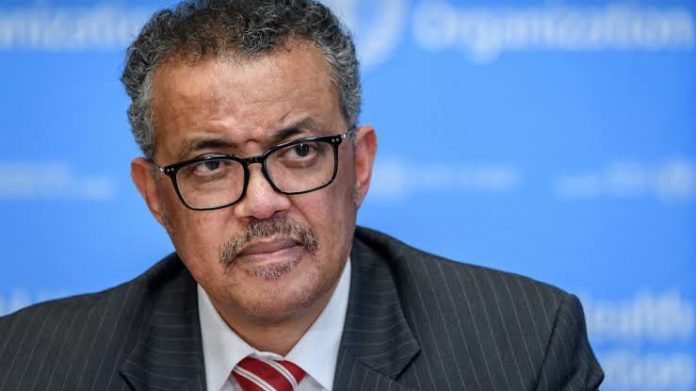New Delhi (NVI): As countries worldwide begin to lift restrictions, World Health Organisation (WHO) chief Tedros Adhanom Ghebreyesus warned that opening up economies amid the coronavirus pandemic is a recipe for disaster.
Tedros said that countries should not reopen economies and lift restrictions if they don’t have control over the virus.
Speaking at a media briefing, the WHO chief said, the more control countries have over the virus, the more they can open up.
Furthermore, he added, “If countries are serious about opening up, they must be serious about suppressing transmission and saving lives. This may seem like an impossible balance, but it’s not. It can be done and it has been done.”
Eight months into the COVID-19 pandemic, countries want to get their economies going again, Tedros said advising on the measures that governments, communities and individuals should take, to do so safely.
His remarks comes at a time when several countries including India are lifting lockdown and relaxing restrictions.
In order to control transmission, Tedros said it is essential to prevent events that lead to outbreaks. COVID-19 spreads efficiently among clusters of people, with explosive outbreaks linked to gatherings at places such as sports stadiums, nightclubs and places of worship.
At the same time, there are ways to hold gatherings safely, he said. With decisions about how and when must be made with a risk-based approach, tailored to local conditions.
He stated that countries experiencing significant community transmission may need to postpone such events. Those seeing sporadic cases or small clusters, on the other hand, can find creative ways to hold events while minimizing risk.
Tedros advocated a focus on reducing deaths by protecting the elderly, people with underlying conditions and essential workers. Countries that do this well may be able to cope with low levels of transmission as they open.
“Individuals must play their part by staying at least one metre away from others, cleaning their hands regularly, practicing respiratory etiquette by wearing a mask and avoiding close-contact settings,” he added.
For governments, widespread stay-at-home orders can be avoided if they take temporary, geographically targeted interventions. It is important to find, isolate, test and care for COVID-19 cases – and both trace and quarantine contacts.
The UN health agency chief said, WHO has a range of evidence-based guidance that can be applied in different transmission scenarios, most recently for hotels, cargo ships and fishing vessels.
WHO is also working with its partners through the ACT Accelerator and COVAX Global Vaccines Facility to ensure that a vaccine, once developed, is available equitably to all communities, he added.
The WHO chief also urged governments to engage with people demonstrating against COVID-19 restrictions and listen to their concerns, but stressed protesters needed to understand the virus was dangerous.
-RJV








